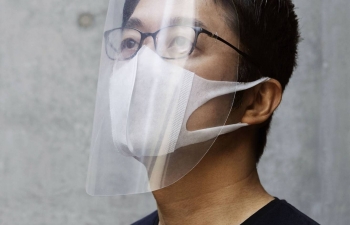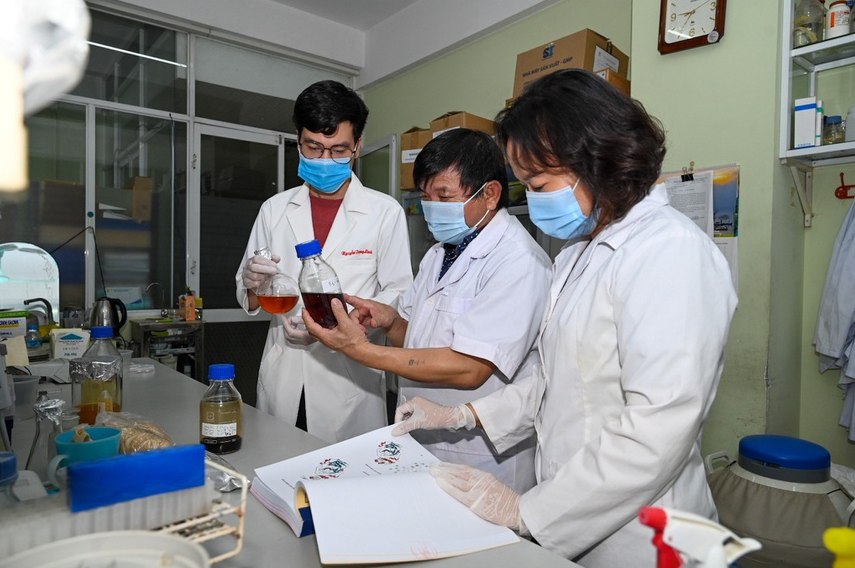Can you get reinfected with coronavirus?
| How to clean reusable face masks the right way | |
| COVID-19 fight: Second cargo of face masks from Vietnam arrived in Italy | |
| Japanese designer shares DIY face shield for COVID-19 |
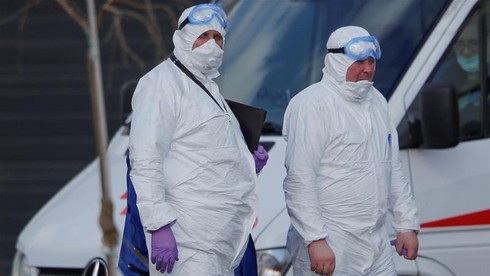 |
| Medical specialists wearing protective gear gather outside a hospital for patients infected with coronavirus disease (COVID-19) on the outskirts of Moscow, Russia on March 23, 2020. Photo: Reuters |
In South Korea, 163 people who recovered from coronavirus have retested positive, according to the Korea Centers for Disease Control and Prevention (KCDC).
The same has been recorded in China, where some coronavirus patients tested positive after seeming to recover, although there are no official figures.
That raises several questions: Can you get reinfected with coronavirus and can a person who has retested positive infect others?
According to CNN, in South Korea, the proportion of cases that retest positive is low -- of the 7,829 people who have recovered from coronavirus there, 2.1% retested positive, the KCDC said on April 17.
A COVID-19 patient is deemed fully recovered after showing negative results for two tests in a row within a 24-hour interval. It is not clear how many of the people who have recovered have been tested again.
But patients retesting positive is still a concern around the world.
KCDC deputy director Kwon Joon-wook said that so far, there's no indication that patients who retest positive are contagious, even though about 44% of them showed mild symptoms.
But he cautioned there is still a lot scientists don't know about the virus, including the issue of naturally acquired immunity.
Remnants of the virus?
For now, the most likely explanation of why people are retesting positive seems to be that the test is picking up remnants of the virus.
The KCDC has re-investigated three cases from the same family where patients tested positive after recovering, Kwon says.
In each of these cases, scientists tried to incubate the virus but weren't able to -- that told them there was no live virus present.
Like many countries, South Korea uses a reverse transcription polymerase chain reaction (RT-PCR) to test for the virus. The RT-PCR test works by finding evidence of a virus's genetic information -- or RNA -- in a sample taken from the patient.
According to Kwon, these tests may still be picking up parts of the RNA even after the person has recovered because the tests are so sensitive.
"That's one possible and very strong explanation," he said.
The same theory was posited by one of China's top respiratory experts, Zhong Nanshan. In a press conference earlier this week, he said that a recovered person can test positive because fragments of the disease remained in their body.
Other explanations
There are other theories for why patients may be retesting positive: there might be an error with the test, or the virus could have been reactivated.
If there's an error with the test, patients may be getting false negatives or false positives. There are a number of reasons why this could happen, including issues with the chemicals used in the test and the possibility that the virus is mutating in such a way that it is not being identified by the test.
In a public briefing, Kwon said it was unlikely testing would have errors. However, he said scientists have been screening patients who tested positive again, to make sure that their positive result wasn't just an issue with the test. "We need more further investigation," he added.
For now, the KCDC is investigating the remaining cases to get a more conclusive answer.
The changing results can be frustrating for patients. Jin Kim, who is hospitalized in the South Korean city of Daejeon, tested positive for coronavirus on March 25 -- this week he tested negative, but a day later he tested positive again. The 25-year-old will have to take another two tests at least, as he needs two consecutive negative tests to be declared recovered.
Once he's discharged from hospital, the government recommends he isolates for two weeks.
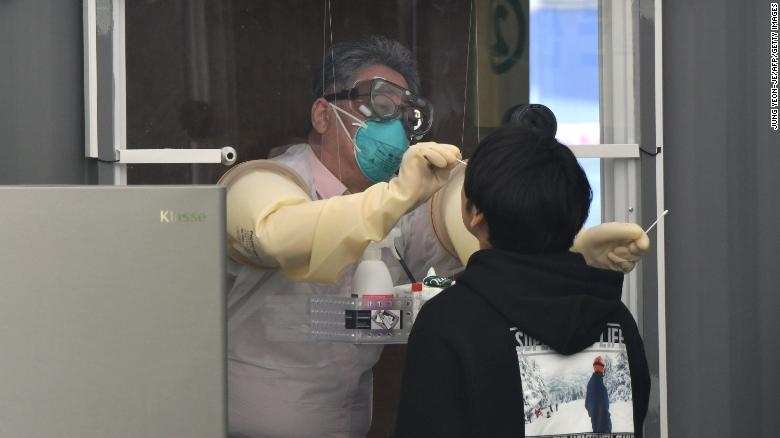 |
| A medical staff member in a booth takes samples from a visitor for the Covid-19 coronavirus test at a walk-thru testing station set up at Jamsil Sports Complex in Seoul on April 3, 2020. Source: CNN |
Can a person who has retested positive infect others?
Kwon says there is no evidence so far of a person who has retested positive being infectious, adding: "At the moment, we think that there is no danger of further secondary or tertiary transmission."
Responding to a question about patients retesting positive at the CNN Town Hall on April 16, Dr. Deborah Birx, the White House coronavirus response coordinator, said the jury was still out on whether a person who had recovered could still shed infectious RNA strands.
"That's a question that's still outstanding -- it hasn't been answered in the studies to date, although people are really working on that now and culturing the virus and seeing if that potential exists," she added.
After coronavirus patients are declared recovered, the KCDC recomends two more weeks of self-isolation to make sure there's no re-detection of the virus.
Antibodies
When a person is recovering from a virus, their body produces antibodies. Antibodies are important because they can prevent a person from being reinfected with the same virus, as the body already knows how to fight the disease.
The number of recovered patients who have retested positive for the virus has raised concerns about how antibodies work in response to Covid-19.
When asked whether it was possible for someone to get reinfected, Birx replied: "In biology, you never want to say that that's not possible."
She said they had seen coronavirus patients appear to recover and develop antibodies, but there was always the possibility of outliers who did not develop antibodies to the virus. "Those outliers always exist, but right now we don't have (any) evidence that that's a common thing that we see," she said./.
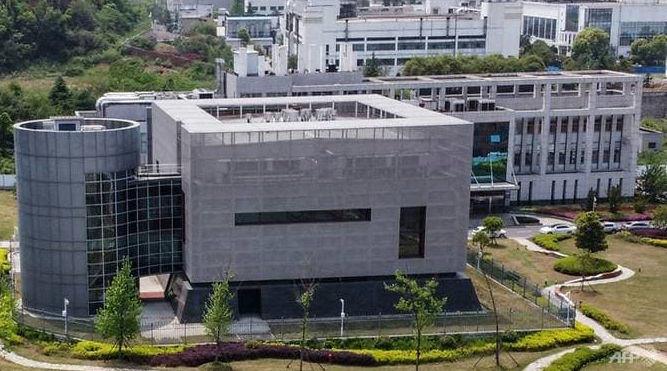 | WUHAN LAB: Mystery deepens over the source of the coronvirus? A look at the Wuhan Institute of Virology, a Chinese high-security bio-safety laboratory at the heart of the coronavirus scandal. |
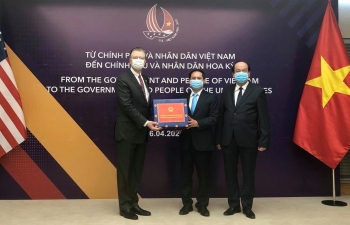 | Vietnam medical supplies for COVID-19 fight presented to US, Japan, Russia Vietnam has just handed over medical supplies to the US, Japan and Russia in support of the fight against the pandemic. |
 | COVID-19 pandemic fight: If we unite, no danger can subdue us Prime Minister Nguyen Xuan Phuc called for closer cooperation and solidarity among ASEAN countries to fight the pandemic, saying that “if we unite, no danger ... |
Recommended
 World
World
Pakistan NCRC report explores emerging child rights issues
 World
World
"India has right to defend herself against terror," says German Foreign Minister, endorses Op Sindoor
 World
World
‘We stand with India’: Japan, UAE back New Delhi over its global outreach against terror
 World
World
'Action Was Entirely Justifiable': Former US NSA John Bolton Backs India's Right After Pahalgam Attack
 World
World
Nifty, Sensex jumped more than 2% in opening as India-Pakistan tensions ease
 World
World
Easing of US-China Tariffs: Markets React Positively, Experts Remain Cautious
 World
World
India strikes back at terrorists with Operation Sindoor
 World
World



